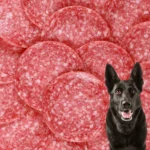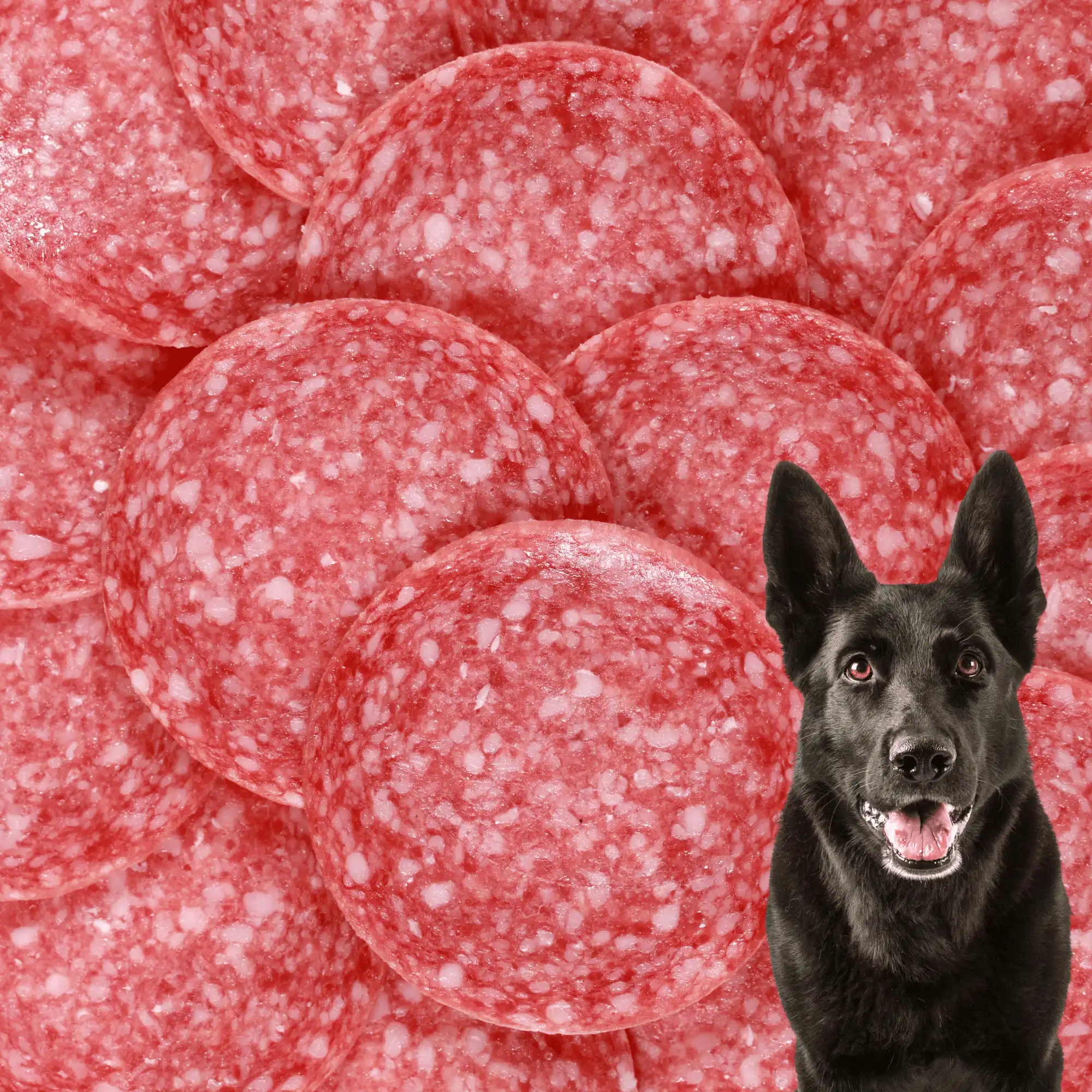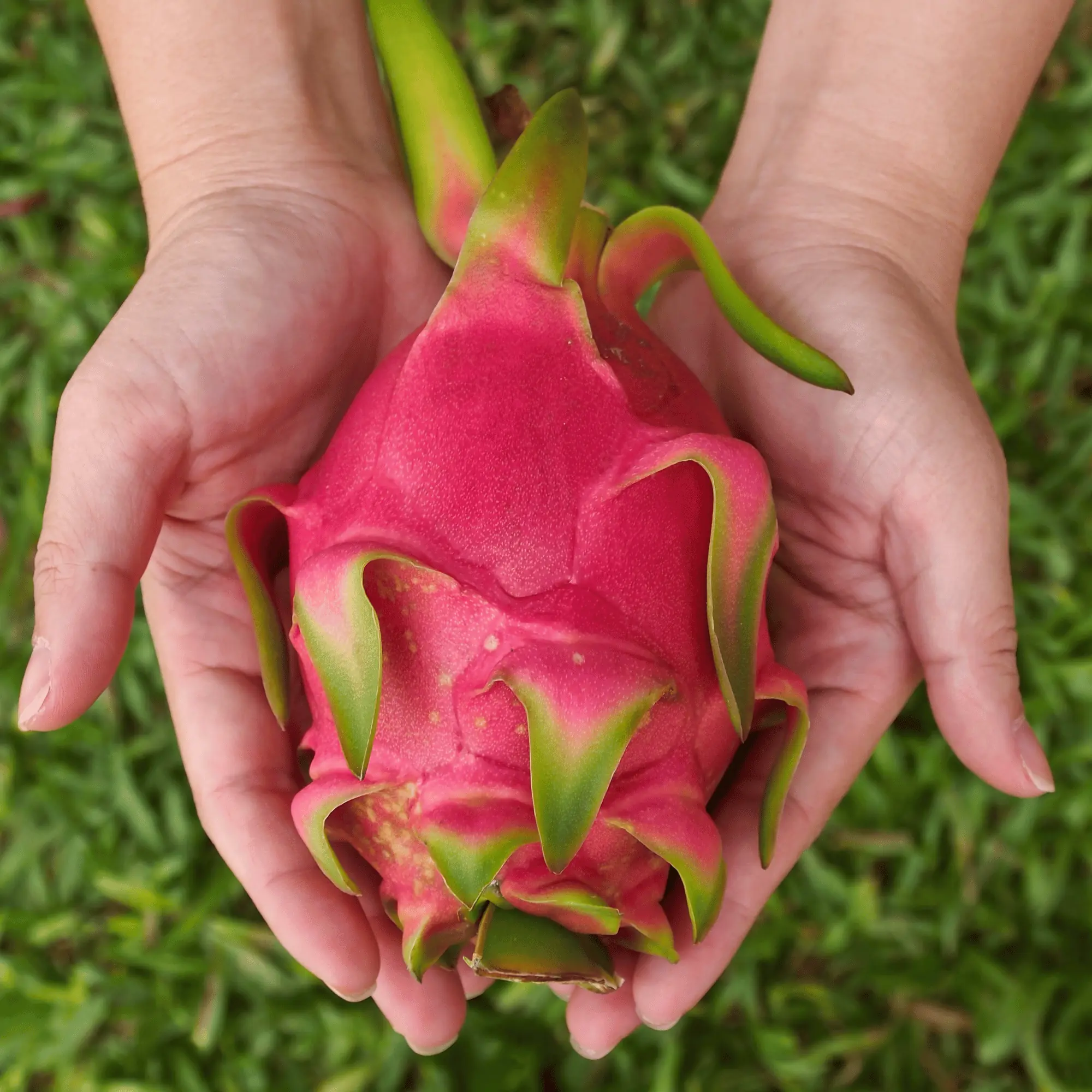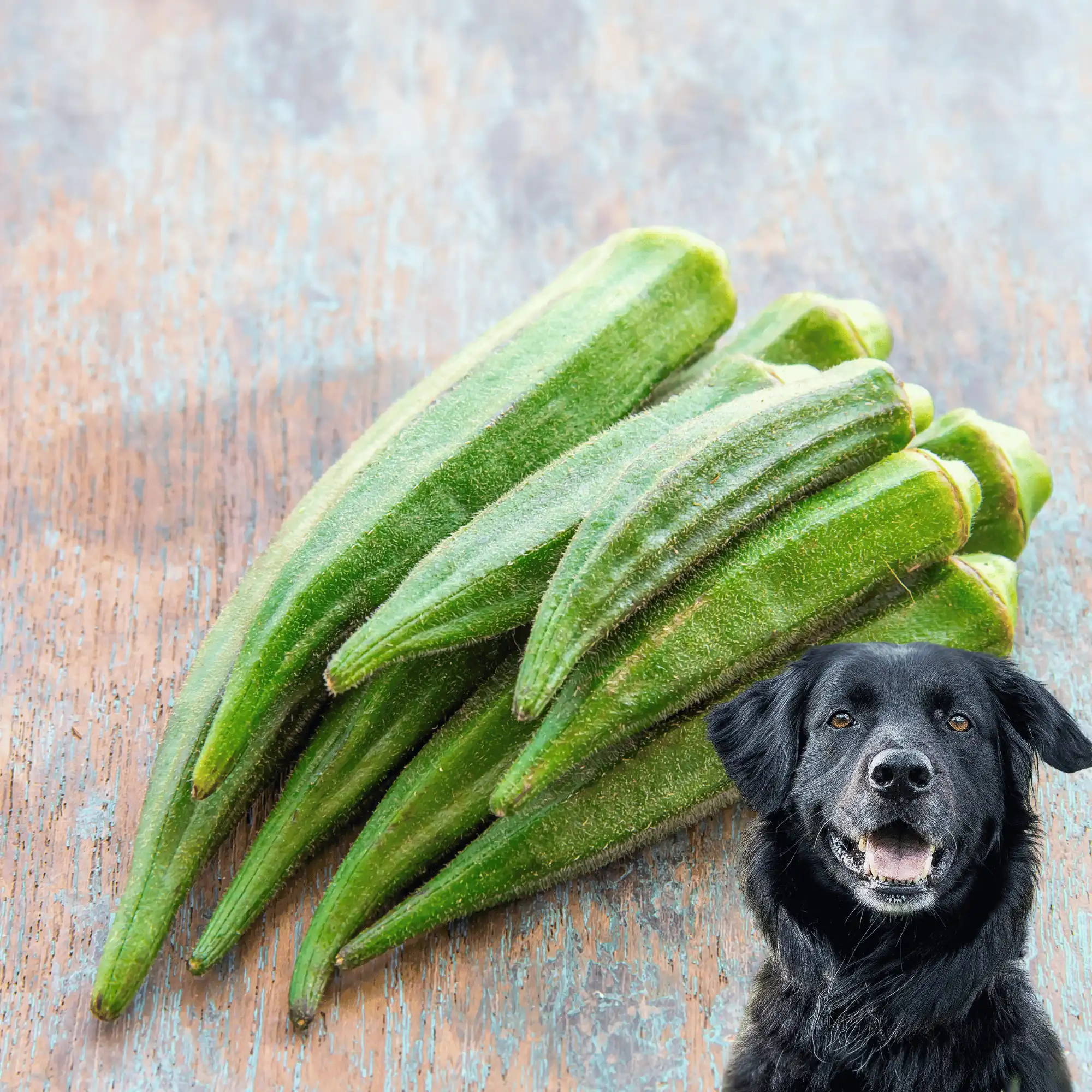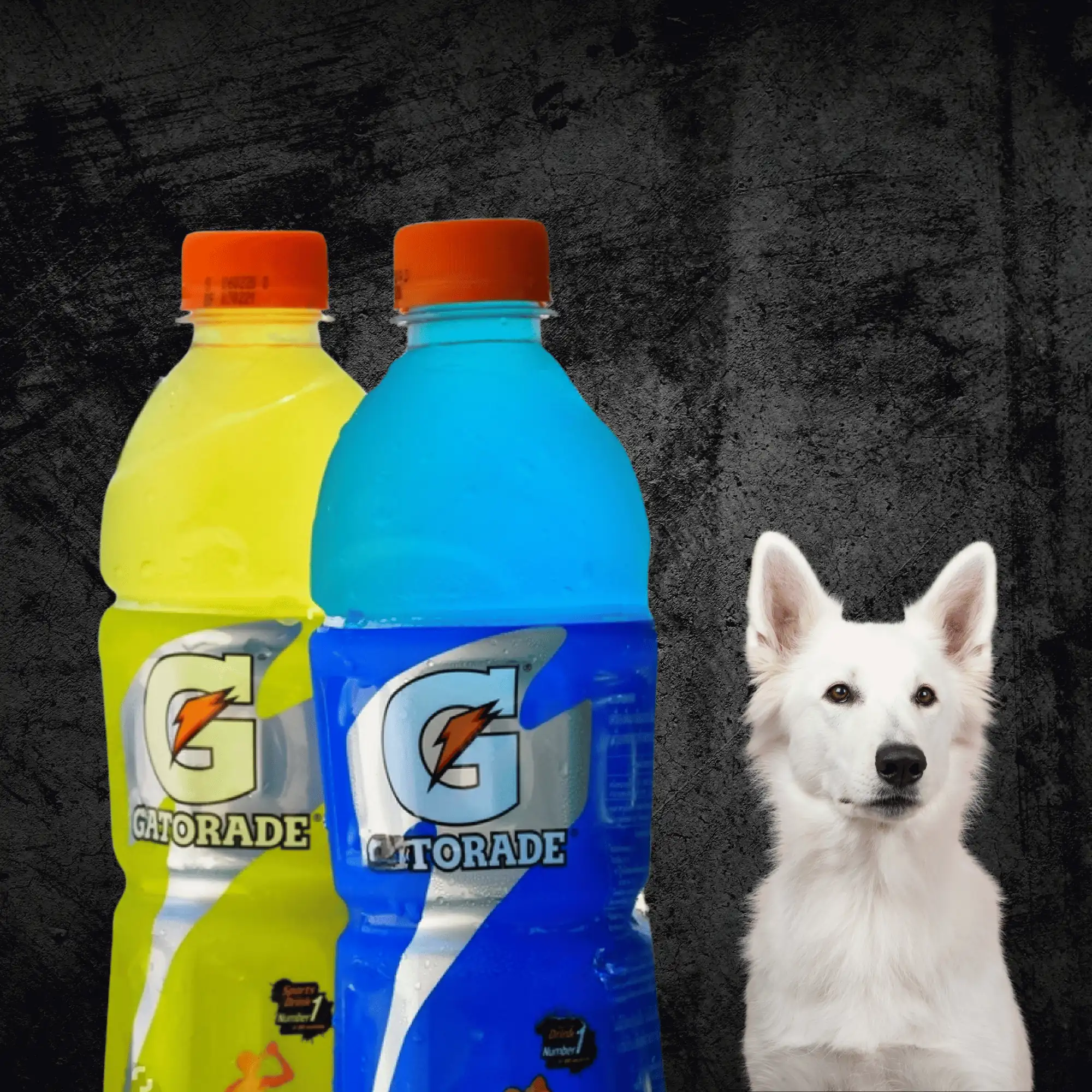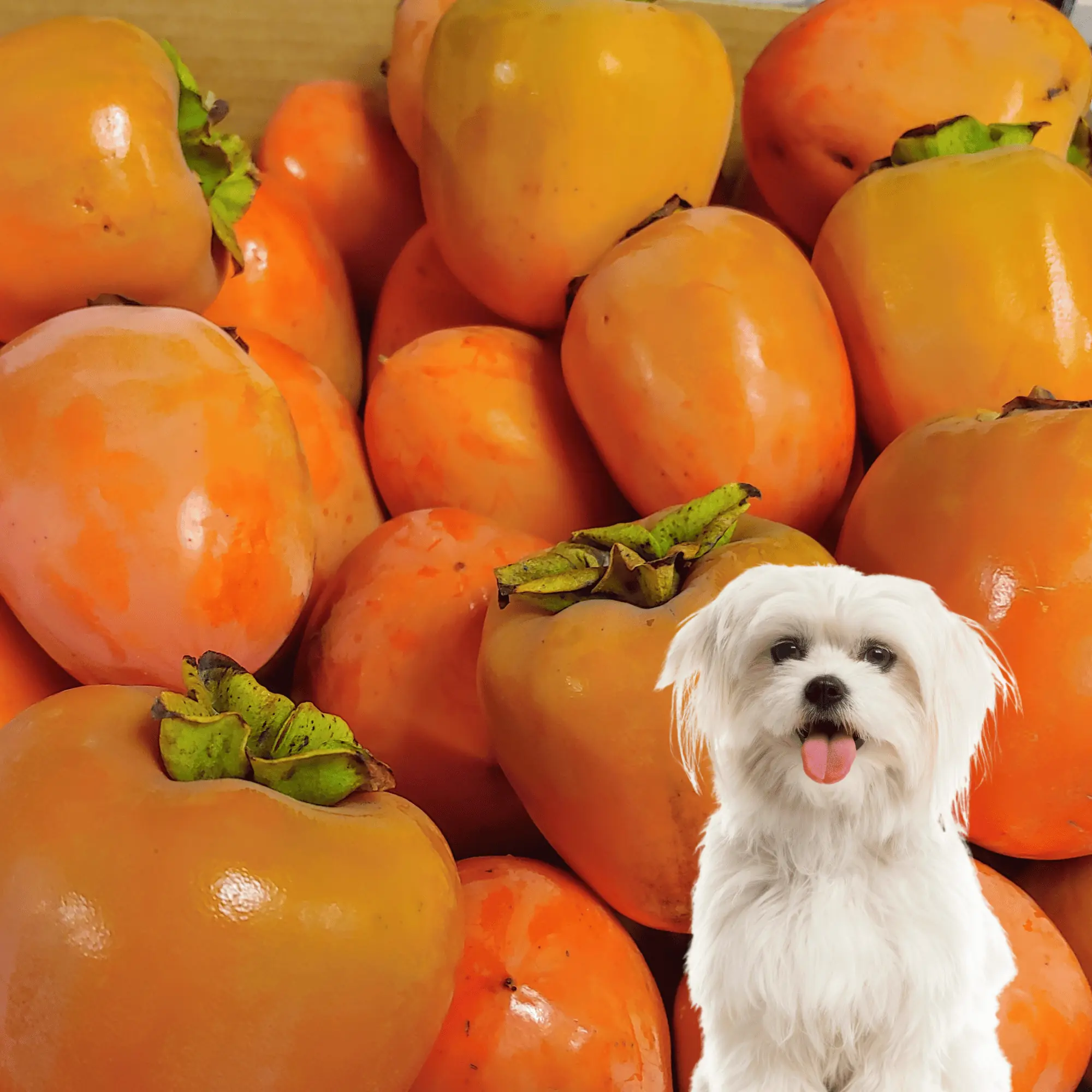Imagine you’re putting together a charcuterie board, and your dog is right there, watching every slice of salami you add. You might think, “What harm could one slice do?” While it may seem harmless, salami’s high salt and fat content can be detrimental to your dog’s health. Knowing the risks and being careful about sharing human food with your pet is important.
So, is it safe to share human food with your dog? The answer is a bit tricky. While salami isn’t poisonous to dogs, it has a lot of salt and fat, which can be harmful. Your dog might love the taste, but it’s essential to be cautious about what you share with them.
Here are the topics we’re following in this article:
- What is Salami?
- Can Dogs Eat Salami?
- Why is Salami Bad for Dogs?
- The Risks of High-Fat Content in Salami for Dogs
- What to Do If My Dog Eats Salami?
- Symptoms to Watch for if Your Dog Eats Salami
- Which Healthy Human Foods Are Safe for Dogs?
What is Salami?
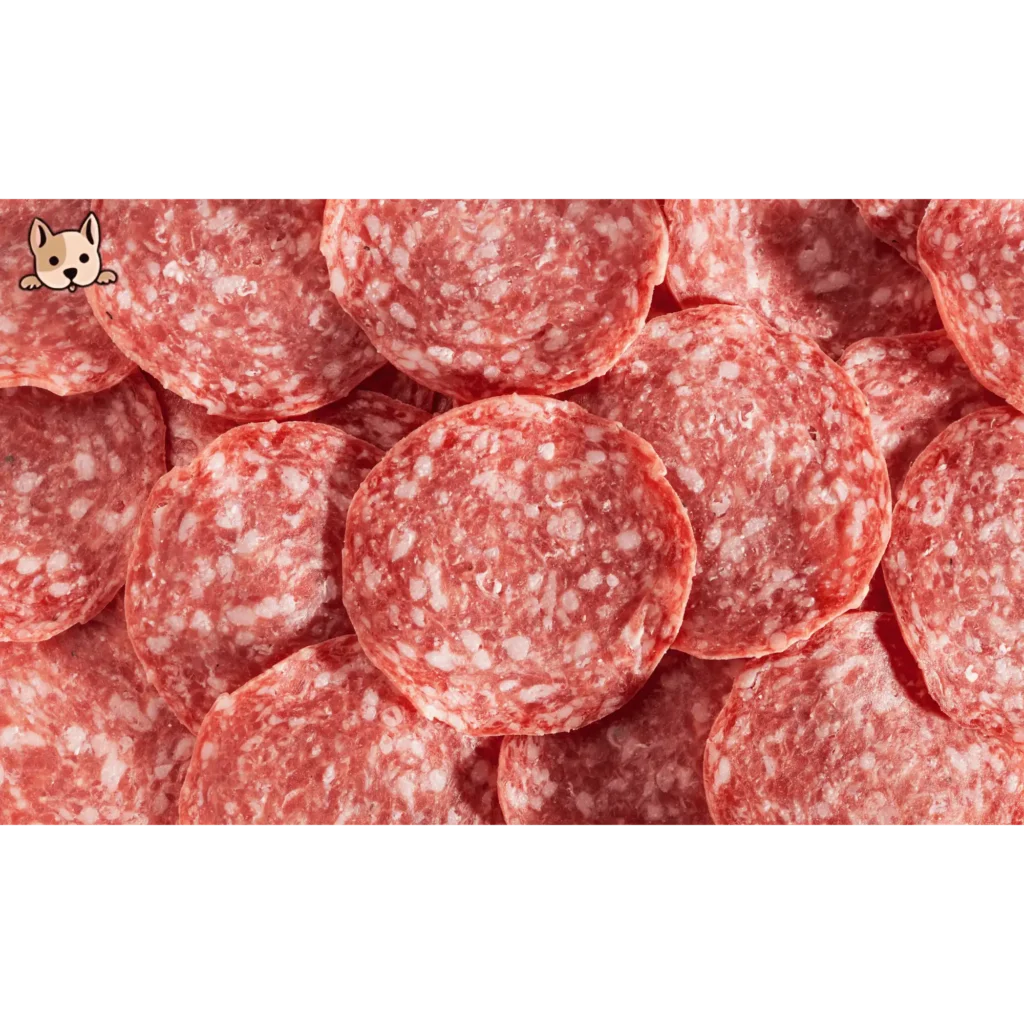
Salami is a popular type of sausage that comes from Italy. It has a strong flavor and is used in many dishes. Salami is made by fermenting and drying meat, usually pork but sometimes beef. The meat is mixed with spices, salt, and other ingredients to give it a special taste.
Salami includes different kinds, like Genoa salami, pepperoni, and soppressata. It is a processed meat with lots of seasonings, salt, preservatives, and additives. These ingredients help it last longer and are safe for people to eat, but they can be harmful to dogs.
Ingredients in Salami:
The primary ingredients in salami include:
- Meat (Pork, Beef, etc.)
- Salt
- Spices (Garlic, Pepper, Paprika, etc.)
- Preservatives (Nitrates, Nitrites)
- Other Additives (Sugar, Vinegar, etc.)
Can Dogs Eat Salami?
The answer is complicated. Although Salami is not toxic to dogs, it has too much salt and fat, which can be harmful. Eating too much salt or fat can cause salt poisoning, kidney damage, or pancreatitis in dogs. Additionally, pepperoni might contain seasonings such as onion or garlic powder, which are toxic to dogs.
Why is Salami Bad for Dogs?
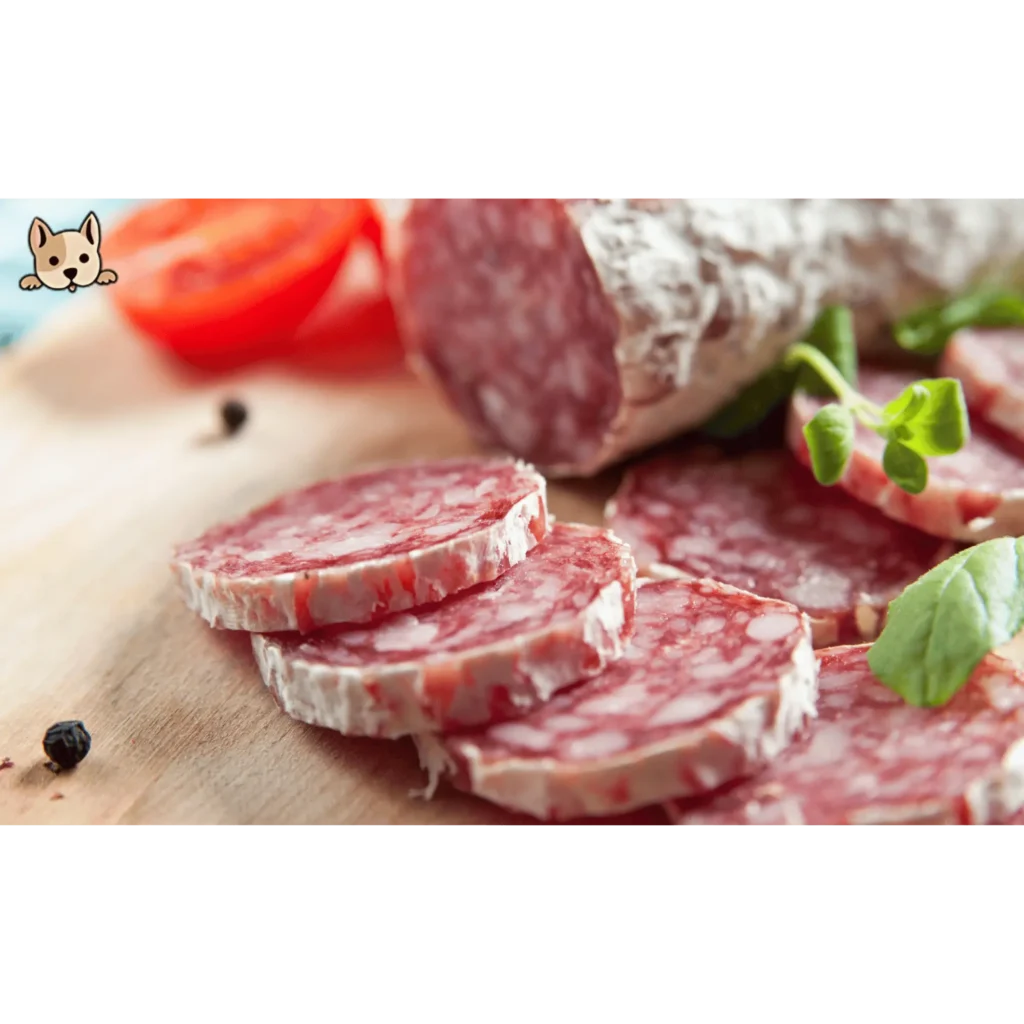
Salami is not safe for dogs due to its high sodium and fat content, which can lead to problems like salt poisoning and pancreatitis. Some salamis also contain garlic powder, which is extremely toxic to dogs.
Dogs do need some sodium, but too much can be harmful. Just one slice of salami can contain over 200 milligrams (mg) of sodium and 26 percent fat, which is far too much for a medium-sized dog that should only consume around 100 mg of sodium daily.
Excess sodium can cause increased thirst, frequent urination, and potentially sodium ion poisoning, which can result in kidney damage and even kidney failure, a life-threatening condition requiring immediate medical attention.
Additionally, salami often contains additives and preservatives like nitrates, which are unhealthy for dogs. Seasonings like onion and garlic powder can cause abdominal pain, diarrhea, and vomiting, as they are toxic to dogs and damage their digestive system.
In short, while a small amount of salami may not cause immediate harm, regularly feeding it to your dog can lead to serious health issues. It’s safest to refrain from giving salami to your furry friend.
The Risks of High-Fat Content in Salami for Dogs:
Besides the high sodium levels, another big concern with salami for dogs is its high fat content. Just like in humans, high-fat foods can lead to obesity in dogs. But there’s another issue specific to dogs when it comes to fatty meats like salami.
Eating high-fat foods can trigger the overproduction of certain digestive enzymes by the pancreas. While these enzymes are essential for digestion, an excess can lead to inflammation of the pancreas, known as pancreatitis.
This condition is excruciatingly painful for dogs and can cause vomiting, diarrhea, dehydration, and disrupt their metabolic balance. In severe instances, pancreatitis can even pose a life-threatening risk. So, it’s best to steer clear of feeding your furry friend salami or other high-fat processed meats to avoid this serious health risk.
What to Do If My Dog Eats Salami?
If you catch your dog snacking on a small piece of salami, stay calm—they’ll probably be alright. Just keep an eye out for any signs of salt poisoning, like excessive drinking, vomiting, or diarrhea.
But if your pup gets into a larger amount of salami, it’s wise to reach out to your vet. They can ask about symptoms and your dog’s health history to determine if medical attention is necessary.
Symptoms to Watch for if Your Dog Eats Salami:
If your dog munches on more than a few slices of salami, be on the lookout for these signs:
- Increased thirst
- Increased urination
- Vomiting
- Diarrhea
- Abdominal pain
Which Healthy Human Foods Are Safe for Dogs?

It’s easy to assume that if we can eat something, our dogs can too, but that’s not always the case. However, some human foods are safe for your furry friend. Here’s a list of what you can share with your pup without worrying about health problems:
- Carrots: They’re packed with Vitamin A and good for the immune system, and chewing them helps clean your dog’s teeth.
- Apples: Rich in vitamins A and C, plus fiber for digestion, but avoid rotten apples and cores.
- White Rice: Cooked plain rice is gentle on the stomach and can help with digestive issues.
- Dairy products: Small amounts of milk, cheese, or plain Greek yogurt are okay, but watch for signs of intolerance.
- Fish: Salmon and tuna are excellent sources of protein and omega-3 fatty acids, but it’s crucial to ensure they are cooked to prevent the risk of parasites.
- Chicken: Plain, boiled chicken is a good protein source and helpful for upset stomachs.
- Peanut Butter: Unsalted and sugar-free peanut butter is full of vitamins and healthy fats, but watch out for xylitol, a sweetener that’s toxic to dogs.
- Plain Popcorn: Without added salt, butter, or sugar, popcorn can be a healthy treat, but avoid unpopped kernels.
- Other Safe Meats: Plain, cooked pork and turkey are safe, but watch the fat content, especially in pork.
- Other Safe Fruits: Blueberries are full of antioxidants, bananas are good for bone health, and seedless watermelon keeps your dog hydrated.
- Other Safe Vegetables: Cucumbers, green beans, and cabbage are all good options, providing vitamins and minerals for your pup’s health.
Conclusion:
In conclusion, while salami might seem like a tempting treat to share with your dog, it’s best to avoid it due to its high sodium, fat content, and potentially toxic seasonings like garlic powder. Regular consumption of pepperoni can lead to serious health issues for your furry friend, including salt poisoning, pancreatitis, and digestive problems.
Instead, opt for safer alternatives from the list of human foods that are safe for dogs, such as carrots, apples, white rice, dairy products in moderation, fish, chicken, peanut butter, plain popcorn, and other safe meats, fruits, and vegetables. These options provide nutritional benefits without posing significant health risks to your dog.
Remember, always monitor your dog’s diet and be cautious about sharing human foods, as not all foods that are safe for us are safe for them. Prioritizing your dog’s health and well-being first involves making informed decisions about their diet and avoiding potentially harmful foods like salami. If you ever have concerns about your dog’s health or diet, consult with your veterinarian for guidance and advice tailored to your dog’s specific needs.
FAQs:
Is salami or pepperoni bad for dogs?
Klein warns, “Pepperoni can upset your dog’s stomach.” This might lead to symptoms such as vomiting and diarrhea. Whether it’s pork or beef pepperoni, it’s risky for dogs due to the potential for salt poisoning.
Can dogs have cured meat?
Cured meats have a lot of salt, which is fine for humans but not for dogs. Too much salt can cause health issues like bloating and kidney disease in your pup.
What is salami made of?
Salami is typically made from pork, though it can also be crafted from beef, venison, poultry, or other meats. The meat is combined with fat and seasoned with herbs and flavorings such as salt, garlic, or vinegar.
Why is salami so expensive?
The cost of salami can vary based on factors like how long it’s been matured, what it’s made of, and the flavorings added. For instance, salami flavored with paprika seasoning might be less expensive compared to other varieties.



